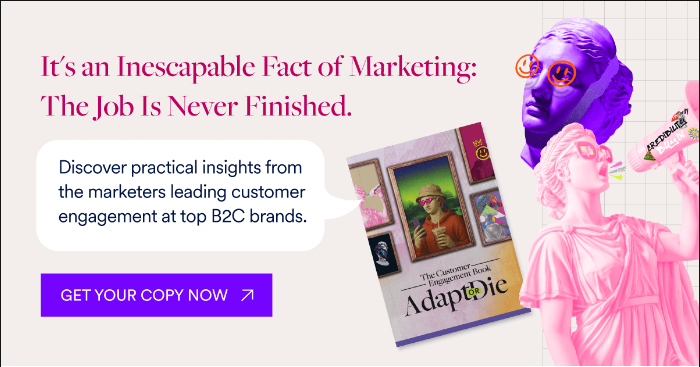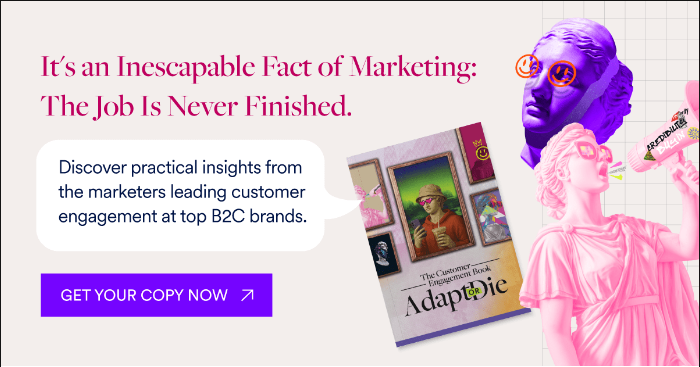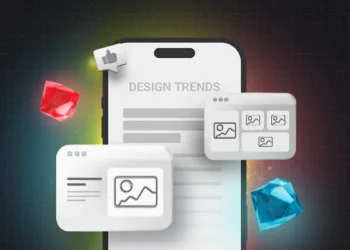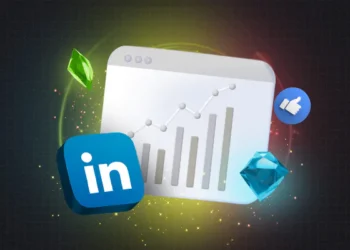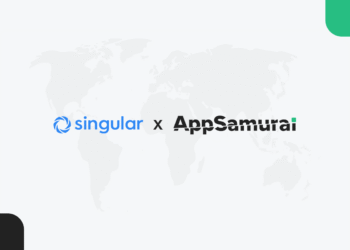Reading Time: 9 minutes
Technology is an unstoppable force. Whether it is the advent of the Internet or AI, there is no denying how these innovations have impacted nearly every aspect of our lives. Take the case of AI marketing, which has shown the ability to be as revolutionary in marketing automation campaigns as the invention of electricity in transforming homes and industries.
Sounds like an overstatement? Wait until you take a look at these stats: 56% marketers say that their company is already taking an active role in implementing and using AI. 70% marketers expect AI to play a larger role in their work.
As more marketers adopt AI for content creation, SEO, brainstorming ideas, and more, AI is expected to occupy a key space in the brand’s core marketing strategy. And we are just getting started!
Whether you’re already leveraging AI or a novice AI marketer, this blog post will tell you everything you need to know about AI in marketing.
What is AI Marketing?
AI marketing refers to using artificial intelligence capabilities to plan, execute, and analyze marketing efforts. It helps brands automate marketing using machine learning, data models, and algorithms. For example, generative AI models like ChatGPT help brands generate text and images.
Brands are using AI to automate repetitive tasks, hyper-personalize, optimize campaigns using data-driven insights, enhance customer support, and create marketing assets at breakneck speed. AI in digital marketing can help brands work smarter with tangible business benefits like higher ROI from better targeting, greater productivity, and superior customer satisfaction and loyalty.
What are AI marketing bots?
AI marketing bots are software applications designed to automate certain marketing tasks. These tasks include generating responses, content, ideas, data-driven personalization, and holding conversations. Typically, bots use natural language processing and machine learning technologies to carry out tasks.
What is “generative AI” in marketing?
Generative AI, or gen AI, refers to a type of artificial intelligence that is capable of generating content in a variety of formats like text, image, video, and audio. Generative AI for marketing can help create many content formats quickly and at scale, transforming traditional marketing as we know it.
According to a McKinsey report, 92% of companies plan to invest more in gen AI in the next 3 years, which portrays optimism about AI and its potential to assist businesses.
5 Benefits of Integrating AI in Marketing
AI marketing has many critical advantages over traditional marketing. Here are some key benefits of integrating AI in marketing.
- Improved creativity – Generative AI for marketing can augment human capabilities in brainstorming, ideating, and creating marketing assets across multiple formats. Creative blocks are normal, but being able to move forward despite them is one of the biggest benefits of AI marketing.
- Faster and more informed decisions – AI’s ability to sift through large volumes of data and translate it into sharp insights allows brands to make faster and more accurate marketing decisions.
- Real-time personalization – Customer behavior keeps changing, but AI for marketing customer segmentation can help you stay ahead of the curve with real-time analytics, predictive insights, and dynamic optimization of campaigns.
- End-to-end Automation – Automated workflows like posting on social media, sending strategically timed emails, and campaign management can free your time for more important tasks. Moreover, complete workflow automation leaves less room for human error.
- Increased ROI and engagement – A 2024 McKinsey report stated that AI marketing campaigns could potentially generate 20-30% greater ROI compared to traditional marketing campaigns. With efficient use of data, time, money, and labor, AI can greatly enhance the effectiveness of campaigns.
Top Uses of AI in Marketing & Examples of How It’s Done
As AI continues to evolve rapidly, its potential transcends what we see today. That said, even at present, AI is being used extensively by brands.
Types of AI marketing use cases
While this isn’t a comprehensive list, it should give you a glimpse into some ways AI can elevate your marketing strategy.
1. Ad targeting
Using AI in digital marketing can allow for targeting based on buyer behavior, preferences, customer lifecycle, micro-segmentation, and more. Further, AI equips brands with powerful analytics, which can help optimize ongoing campaigns in real time.
For example, if an ad is not performing as expected, AI marketing can help improve its performance in real-time by analyzing and fine-tuning aspects like the platform, target segment, creatives, budget allocation, and more.
2. Personalization
The verdict is clear: 71% of consumers expect personalization, and 76% get frustrated if they don’t find it. Until recently, personalization in marketing meant looking at the obvious aspects. Enter AI, and the rules of the game have dramatically changed. AI and marketing have ushered in an era of hyper-personalization, moving from a one-size-fits-all approach to highly relevant, individualized messaging.
AI can help analyze customer history and preferences and create hyper-personalized content dynamically in real-time for a more engaging experience at scale. Thanks to AI-driven insights, you can now tailor your communications based on how often customer have visited your app or website, which products they have shown interest in, and more.
For example, Glance used MoEngage’s Merlin AI to create personalized push notification copy with A/B variations at scale instantly, resulting in 50% faster go-live times.
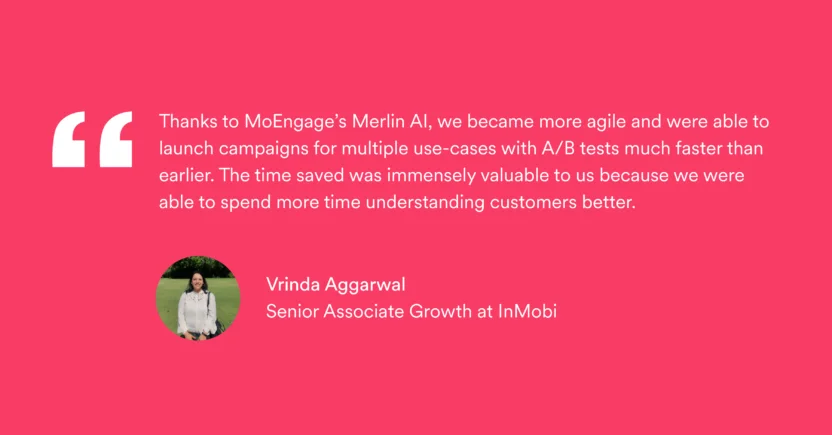
3. Product marketing
AI can help with the core aspects of product marketing, like positioning, messaging, and promotions. Brands can now develop detailed customer personas and conduct thorough competitor analyses with AI for accurate positioning and messaging.
Additionally, brands can leverage generative AI for product marketing by creating relevant content, saving time and effort, and enabling quicker launches.
4. Content marketing
Imagine if you could create, publish, and distribute content at the scale you need, in minutes! A 2025 report said that 55% of marketers placed content creation as the most popular use case of AI in content marketing. Generative AI models are being widely used already to create text, images, and videos for brands — all adapted as per your brand’s needs.
For example, AI for marketing can help you create relevant images for your brand and quickly adapt them to segments, platforms, languages, and more.
5. Email marketing
Do you want your customer relationship emails to be personalized, timely, data-driven, and automated? AI for email marketing can make all of this possible.
Moreover, with AI-based content optimization, workflow automation, and data-driven insights, you can rev up your engagement with effective AI-driven email marketing campaigns. An email marketing automation platform with built-in AI tools can equip you with all you need for smarter AI-powered email marketing.
This includes powerful predictive features to boost email engagement, personalizing campaigns based on customer behaviour, and top-notch email content with AI’s generative capabilities.
6. Customer support
AI chatbots aren’t new, but they certainly are evolving. With technologies like machine learning and natural language processing, bots are having smarter and more personalized conversations with customers.
For example, more advanced chatbots are anticipating customer needs, holding complex conversations, and even directing customers to the right departments independently.
3 AI marketing examples from top brands
A good way to know how to use AI in marketing is to learn from those who have been there and done that successfully. Here are some leading examples of brands that have made the most of AI marketing.
1. Coca-Cola’s iconic AI campaign to creatively engage fans
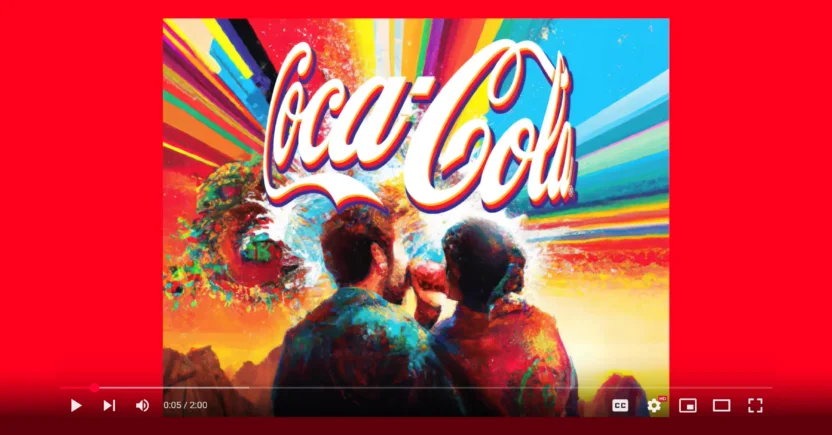
Coca-Cola introduced the Create Real Magic platform for encouraging fans to engage with the brand at a personal level. Here, the brand allowed its customers to create AI-generated art that could potentially feature in Coca-Cola advertisements. Leveraging the rising influence of generative AI in marketing and user-generated content, the brand opened up new doors for engagement with customers.
2. Sephora’s AI Chatbot to Assist with Shopping
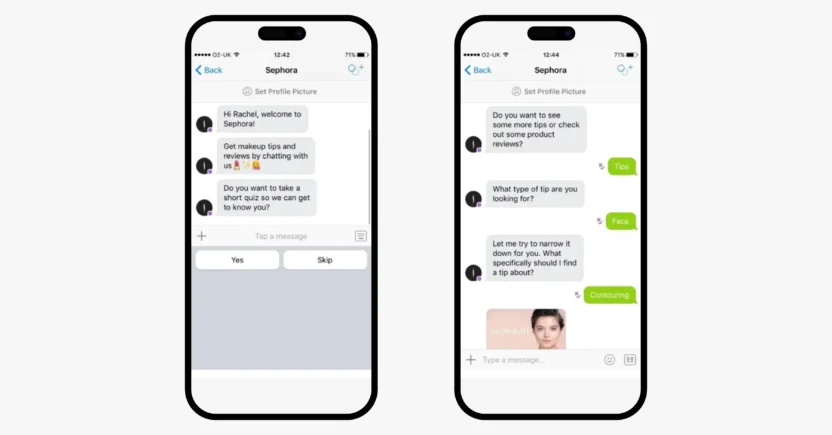
Source: https://www.chatbotguide.org/sephora-bot/
Sephora uses AI chatbot technology to offer curated shopping experiences to customers. This chatbot acts like a beauty advisor, making it easier for customers to choose from an overwhelming number of products. The bot offers personalized suggestions like virtual color matches and beauty tips, and also helps book in-store makeover sessions.
Sephora has seen a higher conversion rate in in-store makeover appointments with the chatbot compared to other channels.
3. Netflix – The AI-first OTT platform
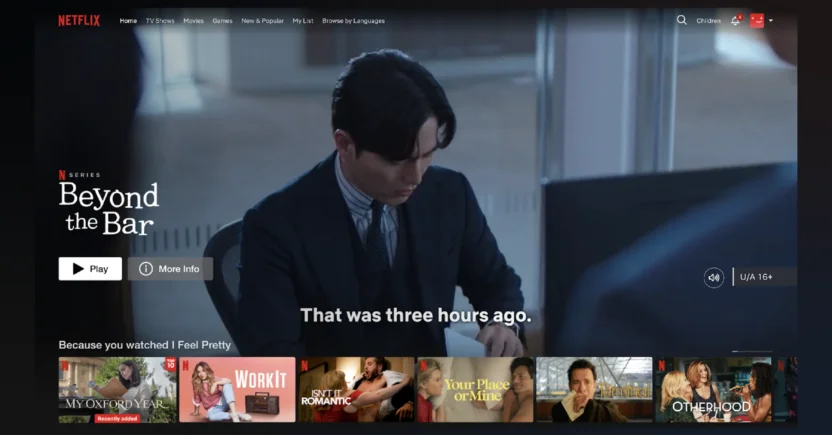
When it comes to AI and marketing, Netflix is the gold standard. From the very beginning, Netflix has prioritized customer preferences. Using AI marketing strategies, Netflix analyzes customers’ viewing habits and interaction patterns, offering a highly individualized entertainment experience.
What’s more, the brand also personalizes thumbnails by ranking frames from preexisting movies and analyzing which ones are most likely to be clicked by customers.
How to Use AI in Marketing: 3 Key Actionable Strategies
Below are some AI marketing strategies you can integrate to improve your brand’s performance.
1. Enhance content and customer experience with automation
One of the key benefits of AI for marketing is the automation of many creative tasks and customer conversations. With chatbots that enable human-like conversations and generative AI augmenting human creativity, marketers can use AI automation to focus on core tasks.
For example, with MoEngage’s Merlin AI Designer, teams can quickly generate images from text prompts. Automating these tasks and personalizing at scale can lead to strategic benefits like quicker turnaround times, efficient operations, and a consistent brand voice.
2. Forecast customer behavior with predictive analytics
Predictive AI has the power to forecast future outcomes using behavioral data and machine learning. As mentioned earlier, Netflix uses predictive analytics to forecast and recommend what its customers would be interested in streaming next. Anticipating customer needs can be a winning strategy for marketers. This is made easy with tools like MoEngage Predictions powered by Sherpa AI, which offers actionable forecasts related to customer behaviour so you can plan how to better engage with customers.
3. Budget optimizations for better ROI
Adhering to a budget when you’re trying to engage with the right audience can be challenging. AI-driven real-time optimizations can help make instant decisions about where to redirect spending. This involves boosting spending on high-performing assets and platforms with real-time analysis while stopping spending on poorly performing ads.
Top 3 AI Tools for Marketing Teams to Leverage
A future-ready AI marketing strategy begins with selecting the right AI tools for marketing. Here are a few that made it to the top of our list:
1. MoEngage
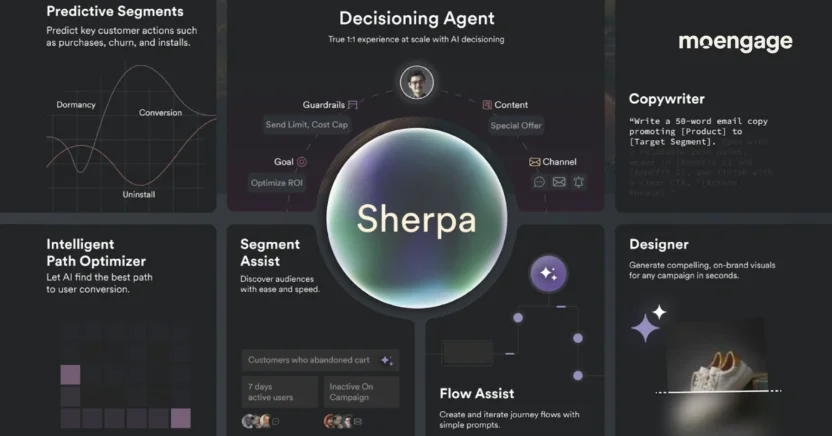
MoEngage is a cross-channel customer engagement platform that allows end-to-end marketing automation. Driven by dual engines, Sherpa AI and Merlin AI, MoEngage can help you double down on the power of AI marketing.
With AI-powered marketing automation, you can engage the right customers and channels with timely and appropriate messaging. Merlin AI’s generative AI capabilities can help you craft eye-grabbing content, create customized journeys, and also conveniently leave your customer support conversations to AI. Just like it helped Thomas Cook achieve 90% faster campaign go-live times!
Apart from these capabilities, MoEngage also offers:
- Merlin AI Segment Assist: It lets you create complex audience segments in seconds using simple natural language prompts, with options to improve targeting over time.
- Merlin AI Decisioning Agent: It delivers true 1:1 personalization by dynamically selecting the product, channel, message, and timing for each customer.
- Best Time to Send (BTS): It predicts the optimal time for each customer and channel to maximize engagement and response rates. This feature helped JibJab achieve an 82% higher clickthrough rate.
- Intelligent Path Optimizer (IPO): It tests up to 5 different paths and automatically directs customers to the best-performing path.
AI-Powered Specializations: Offers dual capabilities of predictive AI and generative AI, along with cross-channel automation for end-to-end automated marketing.
2. Gumloop
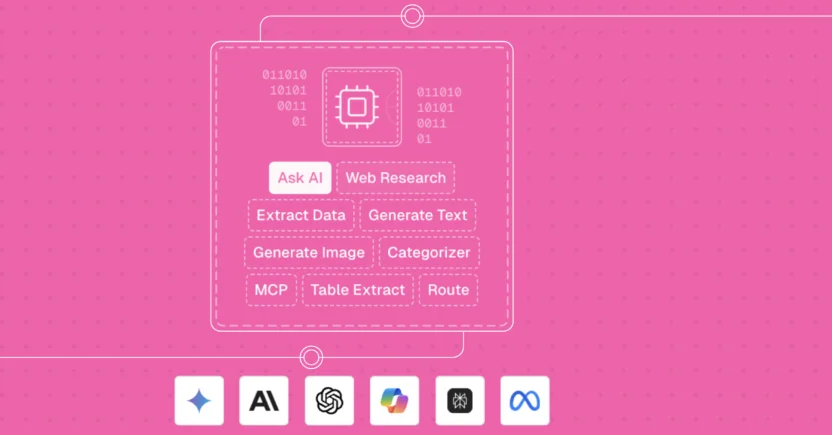
Gumloop is an interesting AI marketing tool that enables you to connect any Large Language Model (LLM) to your internal tools and workflows. With a smooth user interface and API-free access, it can be a go-to platform for exploring various AI models and creating marketing assets integrated with existing workflows.
AI-Powered Specializations: No-code drag and drop interface with access to the latest AI models like ChatGPT, Gemini, and more.
3. Surfer AI
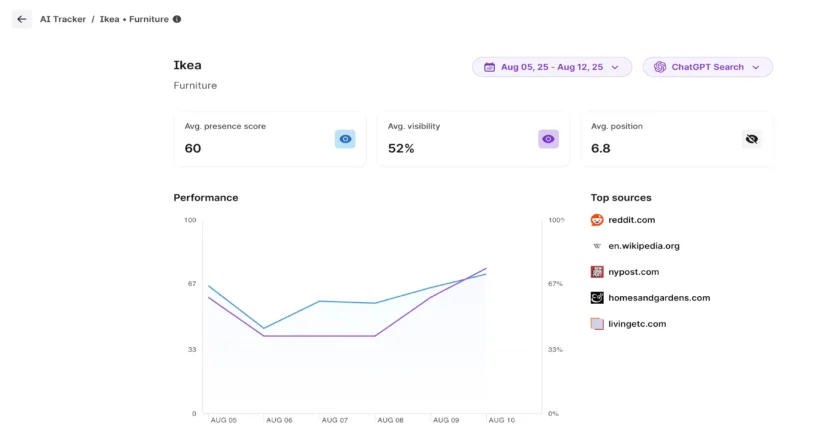
A content optimization tool, Surfer AI allows you to create ready-to-rank articles in minutes. With this tool, you can research, write, and optimize for SEO across industries and languages. Essentially, this AI marketing tool allows you to create SEO-centric content, so you don’t have to use separate tools for writing and SEO purposes. The content is generated within minutes and is designed to rank higher on search engines.
AI-Powered Specializations: Akin to a 24/7 virtual expert, the tool has integrated SEO capabilities with its AI writing tool.
MoEngage: AI-Powered Customer Engagement & Marketing
As AI marketing tools become more sophisticated and extensively used, integrating them in your marketing strategy is non-negotiable if you want to stay on top.
Using AI in marketing can help your brand enhance creative capabilities, reach, and efficiency. Powered by Sherpa AI and Merlin AI, MoEngage combines the predictive and generative power of AI to allow marketers to create personalized content at scale, get real-time insights, predict trends, and optimize campaigns for better engagement. With an AI marketing platform like MoEngage, your brand stands to reap tangible benefits like cost savings, quicker turnaround times, and elevated customer experiences.
If you’re interested in harnessing AI for your brand’s marketing efforts, schedule a quick demo with our team today.
The post AI in Marketing: The Ultimate Guide for B2C Brands in 2025 appeared first on MoEngage.

